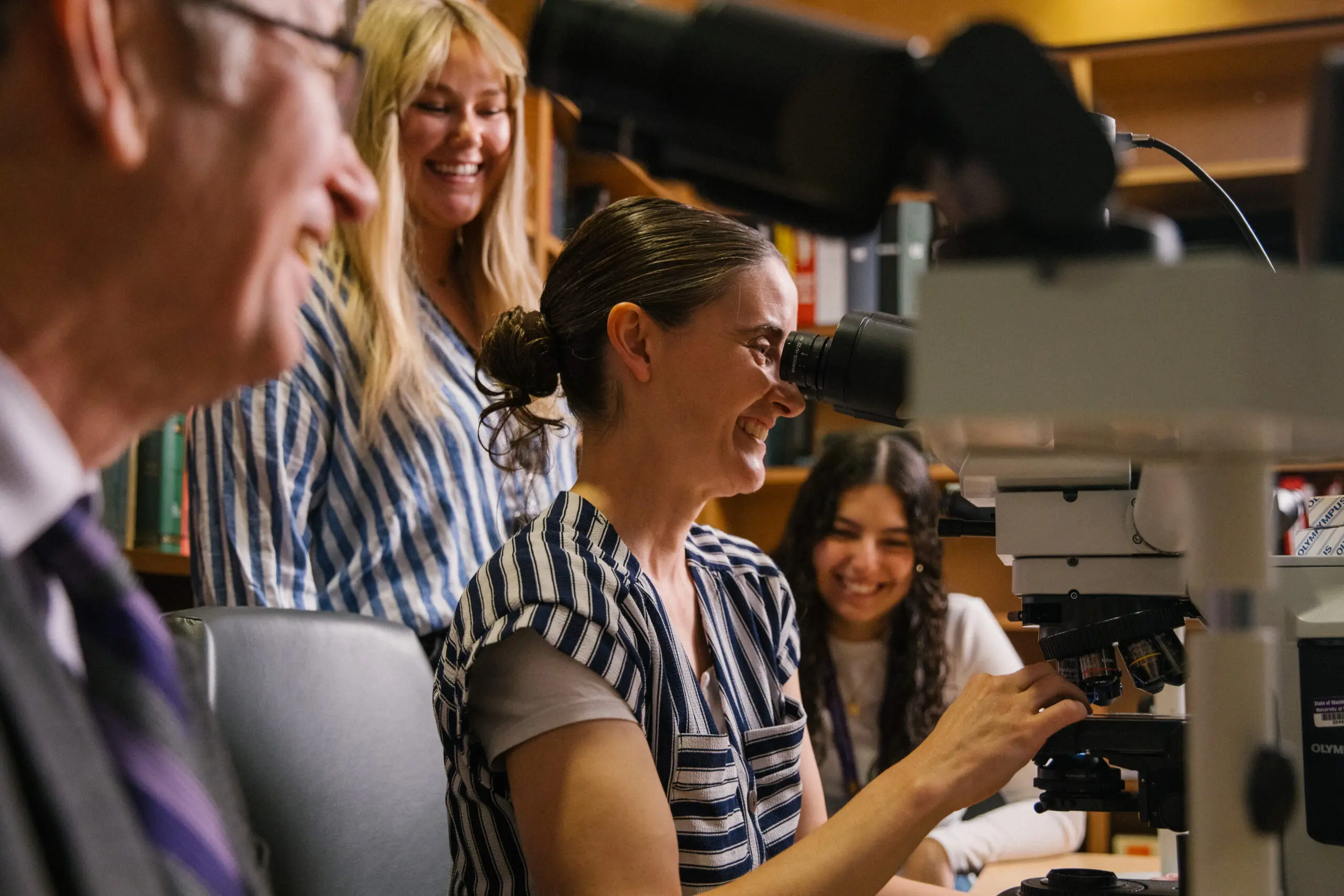“My mother is a spitfire,” says Mara Hazeltine, a fourth-year medical student at the UW School of Medicine. “She was one of the first from her family to emigrate from the Philippines. For her, it was about creating the best life for me.”
Today, Maricor Hazeltine — the aforementioned spitfire — is a nurse in Spokane, the same city where she met her husband and began a family. Both Maricor and Mara love Spokane. In fact, Maricor started instilling a sense of community involvement while her daughter was still in elementary school.
“I took her to a nursing home to volunteer a couple of hours a week,” says Maricor. “Mara would read books, paint fingernails, or just visit with the older folks.”
A Spokane-based education
Spokane is an important part of Mara’s identity, and being able to stay in her community through medical school — a feature of WWAMI, the UW School of Medicine’s five-state regional education program — was very attractive.
The WWAMI program provides good preparation for practicing in a rural area, and, eventually, Mara may choose that kind of practice. There’s definitely a niche for rural doctors.
“You can get pretty rural just driving 20 minutes outside of Spokane,” says Mara. “There’s a high need for physicians in Eastern Washington.”
Community leadership
Even after Mara became a medical student with a hectic schedule, she continued to be involved in her community. In fact, she’s a leader. In her first year in medical school, Mara created a service learning organization called UW Med for Ed, which aims to get kids from underserved backgrounds interested in medicine. One of Med for Ed’s projects is the Walking School Bus, where medical students and other volunteers walk elementary students to school.
“The kids get to school in time for breakfast, you get some exercise in, and the community feels a little bit safer,” says Mara.
But it’s her work with the Spokane Alliance that most likely landed Mara on the Husky 100 list in 2017. The list recognizes University of Washington students who turn classroom learning into community action. Volunteering with the alliance, Mara was able to use her knowledge of health equity to advocate for a law that guaranteed sick leave as well as safe leave — paid time that allows employees to take care of issues related to domestic violence, harassment or stalking — for all the citizens of Spokane.
It’s no wonder that Mara’s classmates elected her president of the Spokane Medical Student Association, a position she’s held for the past four years. Listening to the concerns of her classmates, she was able to help faculty implement professional trainings on race, gender and substance abuse — all issues that future physicians should know how to navigate.
Being homegrown
Mara is about to graduate this spring — helped along in her last year by the Washington Academy of Family Physicians Foundation Endowed Scholarship and two other scholarships — and she just learned that she’ll be completing her family medicine residency in Spokane. It’s a circumstance that pleases her mother enormously.
“My mom likes that homegrown students can come to Spokane and be part of the medical system here,” says Mara. Not surprising, given Maricor’s deep affection for her daughter and her long-standing commitment to the city.
“She will be starting residency at the same hospital where I spent most of my career,” says Maricor. “I’m extremely proud of Mara and her commitment to Eastern Washington.”

